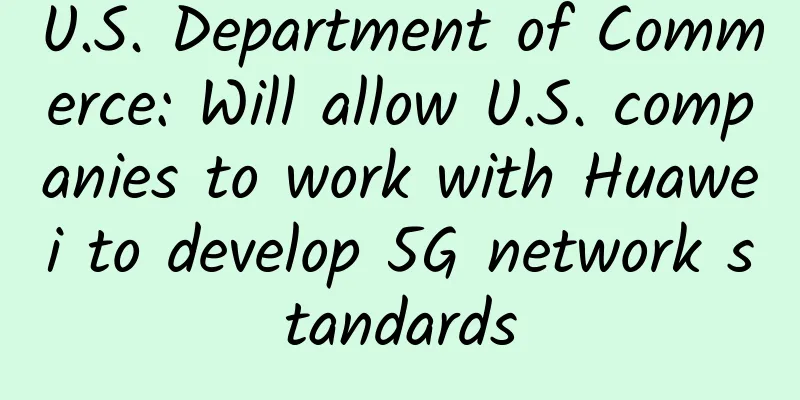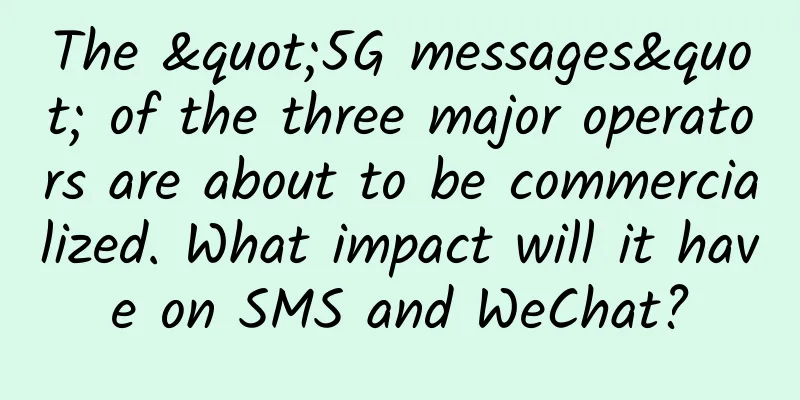U.S. Department of Commerce: Will allow U.S. companies to work with Huawei to develop 5G network standards

|
In the early morning of June 16th, Beijing time, the US government confirmed on Monday that it would amend the ban on US companies doing business with Huawei, allowing them to cooperate in developing next-generation 5G network standards. Reuters previously reported that according to sources familiar with the matter, the U.S. Department of Commerce and other government agencies signed off on the rule change, which is now awaiting publication in the Federal Register, which could be as early as Tuesday local time. U.S. Commerce Secretary Wilbur Ross confirmed reports of the department's upcoming action in a statement to Reuters. The statement said: "The United States will not cede global innovation leadership. The Department of Commerce is committed to encouraging the full participation of U.S. industry and advocating for U.S. technology to become international standards to protect U.S. national security and foreign policy interests." Huawei spokeswoman Michelle Zhou did not immediately respond to requests for comment. The U.S. government last year placed Huawei on the Commerce Department's so-called Entity List, restricting the sale of U.S. goods and technology to the company on national security grounds. Industry and government officials said the rule change should not be seen as a sign of weakening U.S. resolve to restrict Huawei, noting that Huawei puts the U.S. at a disadvantage in setting standards. Because U.S. companies are unsure about what technology or information they are allowed to share, some engineers at U.S. companies have reduced their participation, giving Huawei a greater voice. A person familiar with the matter said the Commerce Department made the amendment to ensure "full participation" of U.S. companies in voluntary standard-setting bodies and respond to concerns from U.S. companies and members of Congress. “The May 2019 Entity List update caused confusion and inadvertently excluded U.S. companies from some technology standards conversations, putting them at a strategic disadvantage,” said Naomi Wilson, senior director of Asia policy at the Information Technology Industry Council, which represents companies including Amazon, Qualcomm and Intel. “This clarification will allow (U.S.) companies to once again compete and lead in this foundational activity that helps roll out advanced technologies like 5G and artificial intelligence across markets,” she added. Kevin Wolf, a Washington trade lawyer, said the amendment "would go a long way toward helping American companies maintain their leadership in international standards organizations without undermining the administration's objectives toward Huawei." In the telecommunications industry, 5G networks are expected to provide the basis for a range of products and services, from high-speed video transmission to self-driving cars. U.S. Secretary of State Mike Pompeo will travel to Hawaii this week to meet with Chinese officials, according to a source familiar with the matter. |
<<: New infrastructure defines the new connotation of data center
>>: China 5G: I have 1G more than 4G, why do so many people still dislike me?
Recommend
An article reveals the practice and thinking of edge computing reference architecture 2.0
[51CTO.com original article] With the development...
Inter-thread communication in concurrent programming
The goal of thread communication is to enable thr...
Does 5G millimeter wave technology pave the way for the next stage of connectivity?
In the rapidly developing digital age, the scope ...
Operators are ready for the cloud computing market in 2019!
After nearly a decade of deployment in the cloud ...
VMware SD-WAN by VeloCloud Optimizes Edge Device Connectivity
VMware SD-WAN by VeloCloud prioritizes centralize...
Allocating 5G private network spectrum is conducive to promoting market competition
Recently, the delayed 5G spectrum auction in Indi...
RAKsmart: San Jose/Los Angeles E3 server flash sale starting from $30/month, cluster server starting from $142/month, US/Hong Kong/Korea/Japan data centers
RAKsmart is a foreign hosting company founded by ...
Shanxi's first "government cloud" platform launched in Xinzhou
Recently, with the "Xinzhou Public Trading P...
Verizon launches 5G private network in the United States and officially launches commercial use
Verizon Business recently launched its first comm...
Detailed Explanation of IPv6 MSTP
Background of MSTP RSTP is an improvement on STP,...
A brief discussion of the TCP protocol, finally understand what it does
[[276056]] 1. What is TCP and what does it do? TC...
QuickPacket: $69/month - E5-2683v4 CPU, 64G memory, 1TB or 500G SSD, 50TB monthly traffic, Los Angeles data center
I searched and found that the last information ab...
China's 5G connections have reached nearly 430 million, accelerating the exploration of vertical application markets
By the end of 2021, nearly 8% of the world's ...
Several issues that companies need to consider in advance when planning edge computing
In IoT applications, data processing, analysis, a...
From East-West Computing to Computing-Network Integration, Mobile Cloud Empowers New Digital Development
With the booming development of the digital econo...









